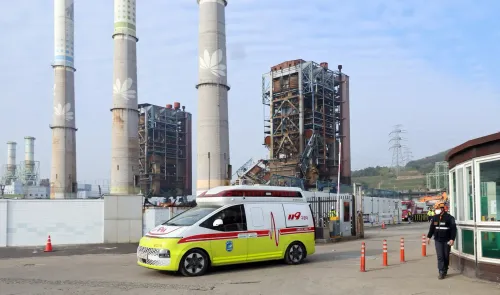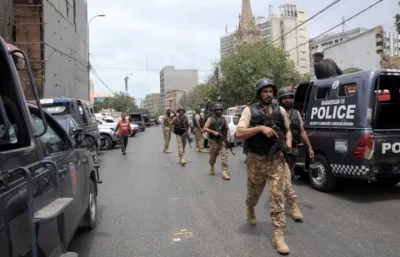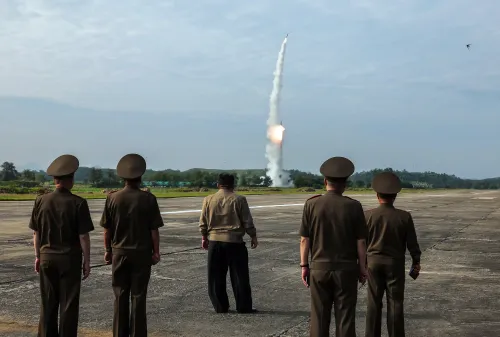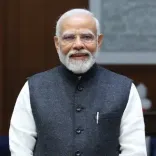What Are the Details of the EU's New Sanctions Package Against Russia?
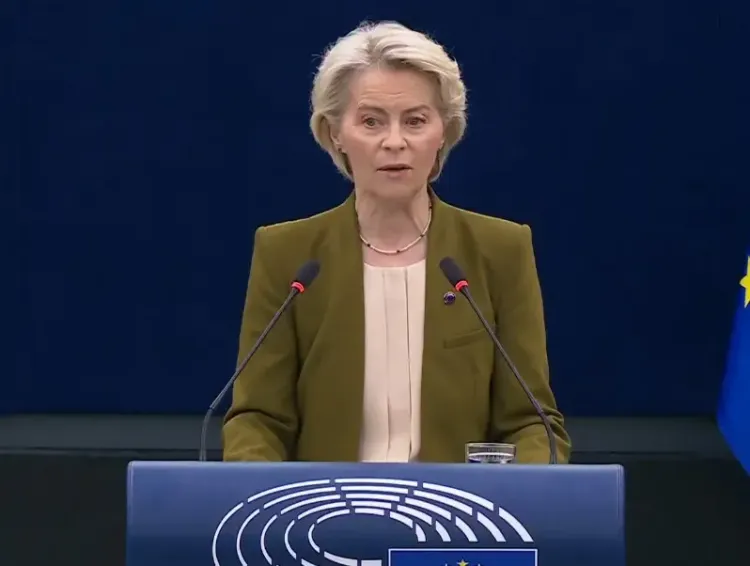
Synopsis
Key Takeaways
- 19th sanctions package targets Russian banks, crypto assets, and energy imports.
- The EU is considering accelerating the ban on Russian LNG.
- Current plans include phasing out Russian fossil fuel imports by January 1, 2028.
- Ukraine calls for more coordinated efforts to undermine Russian resources.
- Analysts stress the importance of internal unity among EU members.
Brussels, Sep 20 (NationPress) The European Commission has unveiled its 19th sanctions package against Russia, seeking approval from the member states of the European Union (EU). This follows a one-week postponement due to pressure from the United States for more stringent measures.
European Commission Chief Spokesperson Paula Pinho confirmed at a press conference in Brussels on Friday (local time) that a new sanctions package targeting Russia has been adopted.
As announced by EU Commission President Ursula von der Leyen on the social media platform X, the package will focus on Russian banks, cryptocurrencies, and energy imports after a phone conversation with US President Donald Trump.
Despite 19% of Europe's gas supply still coming from Russia through the TurkStream pipeline and liquefied natural gas (LNG) imports, the EU is considering a swift ban on Russian LNG as part of the new sanctions, according to media sources.
Over the weekend, Trump urged European allies to cease all remaining purchases of Russian oil and suggested that members of the Group of Seven and NATO impose tariffs on countries supporting Russia's energy exports, claiming such measures are vital to destabilizing Russia's economy, as reported by the Xinhua news agency.
Ursula von der Leyen also indicated that the commission would propose accelerating the phase-out of Russian fossil fuel imports. The complete phase-out is currently scheduled for January 1, 2028.
This new sanctions package was initially expected to be presented last Friday, but a high-level EU delegation's trip to Washington and coordination efforts delayed its release by a week. EU officials emphasized that sanctions will be implemented cautiously to prevent energy price shocks or supply issues within the bloc.
Former Chairman of the Munich Security Conference, Christoph Heusgen, has called on the EU to intensify efforts against Hungary and Slovakia to decrease their dependence on Russian energy, noting that Hungary relies on Russia for approximately 60% of its oil, while Slovakia depends on Russia for around 75% of its energy needs.
Ukraine has expressed the need for a rapid adoption of the 19th sanctions package. Ukrainian Foreign Minister Andrii Sybiha stated earlier this week on X that “coordinated actions across the Atlantic” are crucial to cutting off Russia's resources for the conflict. “Now, the focus must be on strengthening the 19th package,” he emphasized.
In response, Russia has minimized the anticipated impact of these upcoming sanctions. Maria Zakharova, Foreign Ministry Spokesperson, remarked during a briefing on Friday that the threats from Washington and Brussels are inconsequential and will not effect change. She also criticized the EU's efforts to abandon Russian energy as “suicidal sabotage,” warning that Brussels is overextending itself.
Since the onset of the Russia-Ukraine conflict in 2022, the EU has enacted 18 sanctions packages against Russia, targeting finance, technology, and energy sectors.
Analysts indicate that the 19th package will be a test of the bloc's capability to uphold internal unity while addressing increasing US demands for a more rapid and comprehensive response.

